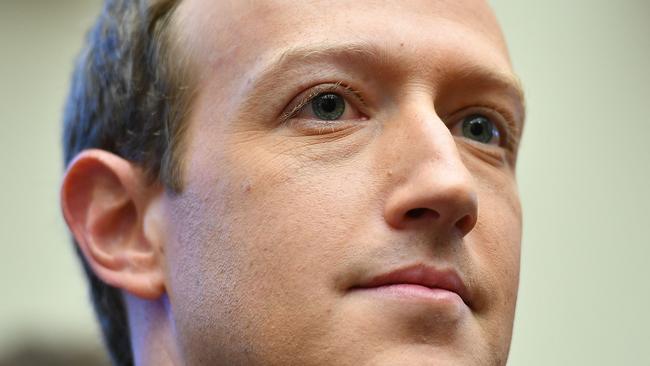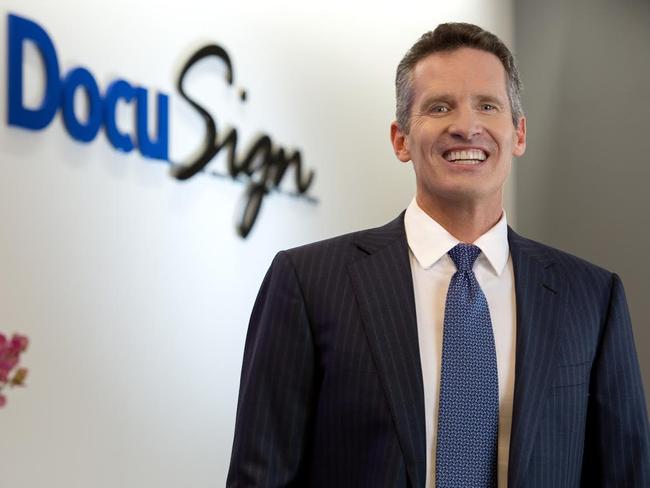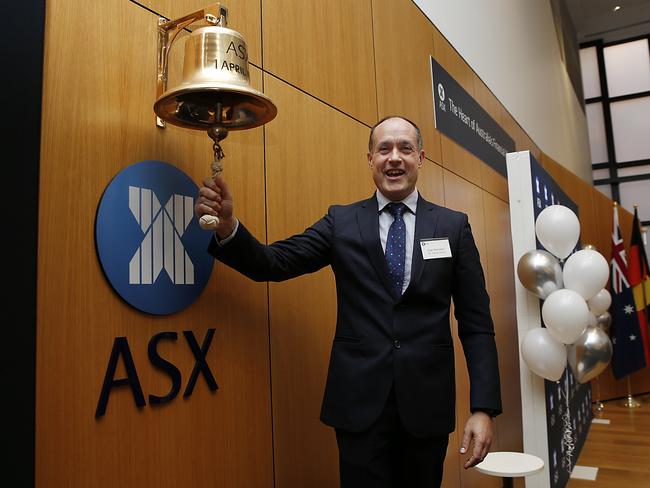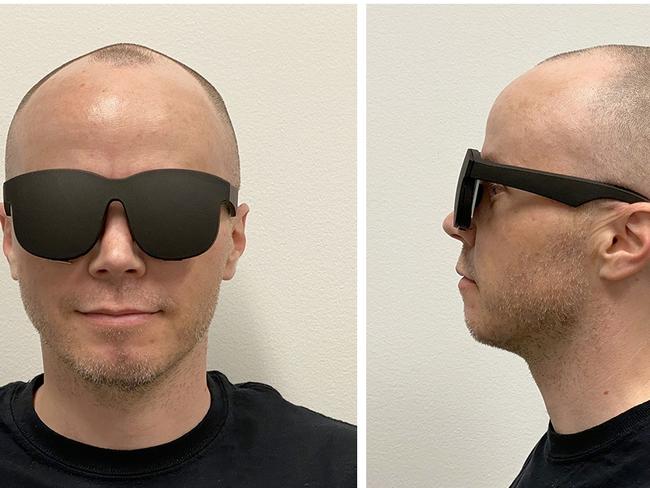Social media bans continue
Facebook says it has removed hundreds of accounts associated with the right-wing ‘Boogaloo’ movement.

Welcome to The Download, The Australian’s technology blog for the latest breaking tech news.
Chris Griffith 2.30pm: Social media bans continue
Yesterday it was the banning of President Donald Trump on multimedia platform Twitch. Now Facebook says it has removed 200 Facebook accounts, 95 Instagram accounts, 28 Pages and 106 Groups associated with the right-wing Boogaloo movement under its Dangerous Individuals and Organisations policy.
“This violent network is banned from having a presence on our platform and we will remove content praising, supporting or representing it,” says Facebook in a blog post.
“We know the initial elements of the boogaloo movement began as far back as 2012, and we have been closely following its developments since 2019.
“We noted that some people who participated at the Gun Rights Rally that took place in Richmond, VA (Virginia) on January 20, 2020, wore the outfit now typical for boogaloo adherents and we have since tracked the movement’s expansion as participants engage at various protests and rallies across the country.
“More recently, officials have identified violent adherents to the movement as those responsible for several attacks over the past few months. These acts of real-world violence and our investigations into them are what led us to identify and designate this distinct network.”
The move comes as more advertisers pull the plug on their Facebook ads. Volkswagen, Ford and Dennys are now among them. Some bans are only for short periods, such as Ford’s boycott for a reported 30 days. Others are open ended.
Chris Griffith 2.30pm: Samsung sells 8TB solid state drives to consumers
The capacity of solid state drives continue to head skyward. Nimbus Data for example sells an enterprise SSD with a 100TB capacity. At US$40,000 ($58,200) you’ll need to sell your car and maybe more to afford it.
More realistically for many, Samsung has announced it is selling its 8TB Samsung 870 QVO SATA SSD for $1429 in Australia. It’s part of the new 870 QVO range. The 1,2 and 4TB versions cost $209, $419 and $839 respectively, so they are affordable.
Samsung says the previous 860 QVO range proved popular with consumers wanting to speed up their PC performance.
The 1TB version is available now, the 2 and 4TB SSDs go to market in Australia in August with the 8TB SSD following in September.
David Swan2.20pm: Australian employers ‘have no plan’
New research shows that while than nine in ten (91 per cent) of workers are happy with their company’s performance when it comes to adapting to the challenges of COVID-19, only 20 per cent say those employers are prepared for the new way of working.
The survey of 2,000 Australian office workers, conducted by Docusign, found that most employees are satisfied with their bosses, but skeptical about their ability to adequately plan for the future.
“It’s surprised me a bit just how happy people were with their company’s reactions to the pandemic,” Docusign chief executive Dan Springer told The Australian.
“Three quarters of respondents thought that COVID-19 will change the way they work forever, so what customers need to do now is accept that this is not back to the old normal, this is the new nromal. And I think the tricky part is, I don’t think we know what the new normal is.
“The answer is to be open to that fact and be flexible. Your employees are going to ask you to operate in a different way.”

The research also found 85 per cent of workers say new styles of working have a positive impact on how their business operates, while 71 per cent would use this period to redefine how they work in the future.
Docusign, like fellow software companies Zoom and Slack, has seen silver linings in the COVID-19 pandemic with the company’s share price up more than 200 per cent since the health crisis hit.
Mr Springer said Docusign, which provides e-signature tools and cloud-based agreement functionality, was well positioned to capitalise on the ‘new normal’.
“We’ve had this acceleration with our growth, and work from home has accelerated how the market opportunity looks for Docusign,” Mr Springer said. “There’s a little bit more pressure, I want to make sure our shareholders get positive returns. I think about the investors buying today, and I want to go even higher in the long run. Short term, I don’t worry about fluctuations too much, but in the long run I want to deliver for our investors.
“I smile a little bit when I see the stock go up but I mostly focus on just getting back to business, knowing that the only reason that it’s going to keep going up is if we deliver great customer success.”
1.50pm: FCC designates China’s Huawei, ZTE as national security threats
The US Federal Communications Commission on Tuesday officially designated Chinese telecom-equipment companies Huawei and ZTE as national security threats, in a move to protect US communication networks - in particular, emerging 5G networks.
“Both companies have close ties to the Chinese Communist Party and China’s military apparatus, and both companies are broadly subject to Chinese law obligating them to cooperate with the country’s intelligence services,” FCC Chairman Ajit Pai said in a statement. The designation means that money from the FCC’s $US8.3-billion-a-year Universal Service Fund may not be spent on Huawei or ZTE equipment or services.
The decision mainly effects smaller, rural US telecom companies.
The FCC initially barred spending on Huawei and ZTE products in November.
Dow Jones
David Swan 1.30pm: Bell tolls for TPG-Vodafone merger
Vodafone chief executive Iñaki Berroeta has ushered in a new era for Australia‘s telecommunications industry, but not without doing some damage first.
The 20-year industry veteran rang the bell at the Australian Securities Exchange in Sydney on Tuesday, marking the long-awaited entrance of a true third telco player to rival Telstra and Optus.

Mr Berroeta will be the new chief executive of TPG, a $15bn merged company combining Vodafone‘s mobile capabilities with TPG’s fixed broadband prowess, with billionaire TPG boss David Teoh to serve as the company’s chairman.
“It’s been almost two years since we announced the merger so to finally have the letters T-P-G up on the trading board is very exciting,“ Mr Berroeta told The Australian.
“When I was ringing the bell, I was really excited to reach this milestone but I was also hoping that the rope would break.
“I was really happy when the rope did break, and I dedicate it to the team which has worked very hard on this merger.”
David Swan 11.45am: MedAdvisor up 12 per cent on US deal
Shares in ASX-listed health tech outfit MedAdvisor are up 12 per cent after the company struck a deal with NASDAQ-listed HMS, a partnership it says will open up a new market segment of insurers in the US for Medadvisor and support joint activities in Australia.
The deal, announced Wednesday morning, will last for three years and will involve Medadvisor integrating with HMS to support “up to 100 million insured lives”, with MedAdvisor expecting to generate revenue for each of the secure digital messages sent on behalf of HMS‘ clients.
MedAdvisor offers a virtual pharmacist, ‘Pharmacist Phil’ on smartphones, tablets and PCs.
“This deal opens up a new addressable patient population beyond our existing partnerships. It also adds the potential to bring a different sponsor for our health programs, in the US health insurer, while leveraging the same MedAdvisor global technology platform,“ MedAdvisor chief executive Robert Read said.
“HMS has a significant pipeline of opportunities to work collaboratively in the US and Australia and we look forward to working with them under our new Strategic Alliance Agreement.”
At 11.30am MedAdvisor was up 12 per cent to 56 cents per share.
David Swan 9.50am: ATO website crashes
The Australian Taxation Office‘s website crashed on Wednesday, with the platform taken offline apparently due to high traffic.
Users took to Twitter to complain they were unable to access the ATO‘s website or lodge their tax returns.
The website crashed at around the same time last year, as people scrambled to file their returns.
Services Australia has been contacted for comment.
As of 9.50am, the website appears to be back online.
Chris Griffith 9.10am: Facebook unveils holographic glasses

Facebook has unveiled virtual reality glasses that look like a pair of dark sunnies rather than the usual bulky VR head set.
Facebook Reality Labs acknowledges that the glasses are at proof of concept stage. However, the lab has published a research paper detailing how it can use holographic optics to shrink it down to glasses size.
“Researchers Andrew Maimone and Junren Wang propose a new class of near-eye displays, which combine the power of holographic optics and polarisation-based optical folding — an approach that could be used to develop future sunglasses-like VR hardware,” Facebook says in a research blog.
“These two methods help keep the optics as thin as possible while making the most efficient use of space. We anticipate that such lightweight and comfortable form factors may enable extended VR sessions and new use cases, including productivity.”
Facebook says that by using just thin, flat films, the optics achieves a display thickness of less than 9mm while supporting a field of view comparable to today’s consumer VR products. It acknowledges the work is only research at this stage.
“To our knowledge, our work demonstrates the thinnest VR display demonstrated to date, and we’re excited to see what the future holds.”
9.00am: Microsoft to train 25 million people for free
Microsoft will provide free online classes and job-hunting resources to 25 million people by the end of the year as the global economy reels from the coronavirus pandemic.
The training, available to workers around the world, is designed to teach digital skills Microsoft says people need to enter 10 occupations, such as helpdesk technician, digital marketer and data analyst. Microsoft, in concert with data from its LinkedIn business, chose the 10 jobs because demand for them is growing and they pay well relative to other roles. Most of the jobs have the potential to provide opportunities for those with or without a college degree, the company said.
The effort is a response to two long-term trends, said Brad Smith, Microsoft’s president: Automation and artificial intelligence are changing the skills required for nearly every occupation, so workers without digital skills will fall further and further behind. At the same time, employer investments in training and education have declined or stagnated over the past two decades.
The Wall Street Journal
Chris Griffith 9.10am: Australia’s infrastructure faces a heightened security risk
Australia’s industrial infrastructure such as water, power, sewage and transport faces a heightened security risk as state sponsored hackers increase their activities globally.
Global cyber defence firm Darktrace which services large infrastructure clients including in Australia says it has observed an increasing number of state-based attacks on plants in the past two years.
Director of technology for Darktrace Industrial, Andrew Tsonchev, said infrastructure was increasingly using public internet rather than private communications.
“We have a customer in Australia, one of their major manufacturing plants. We found that an attacker had compromised the fingerprint scanner that was used to control physical access in and out to the machinery in the plant.
“The attacker was replacing the legitimate employees’ fingerprint data on that scanner with their own fingerprint data on that scanner.”



To join the conversation, please log in. Don't have an account? Register
Join the conversation, you are commenting as Logout